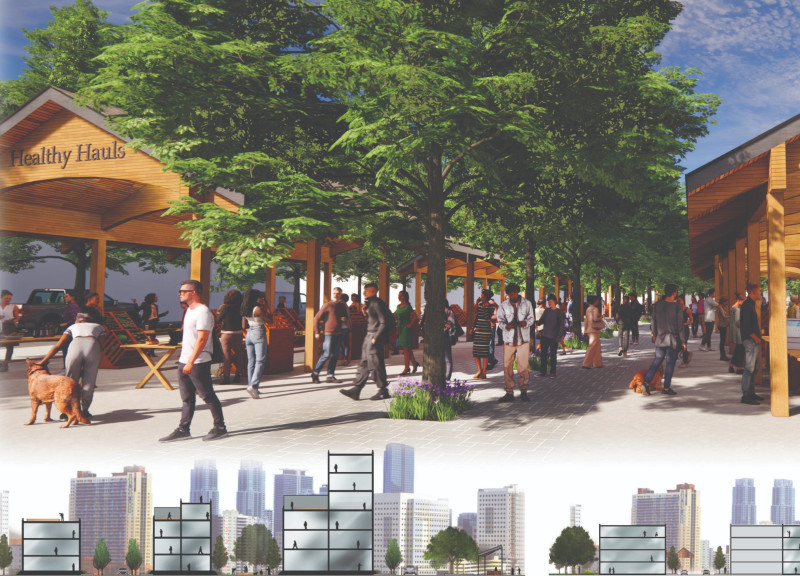5 key facts about this project
The RIVER PROJECT PURIFICATION combines agriculture and urban living in a way that supports sustainability while encouraging community interaction. The site is designed to integrate various functions, like local farming, housing, shops, and educational spaces. At its core is a solid concept focused on creating an ecological cycle that connects water management with food production and social engagement.
Water Management Systems
A key feature is the water treatment plant that processes wastewater from nearby buildings. This facility plays an important role in recycling water, helping to nourish the landscape and allowing it to flow back into the river. Complementing this system are drip irrigation systems that make the most of the available water for crops. These elements demonstrate a commitment to environmental responsibility and provide for the agricultural needs of the urban setting.
Functional Zoning
The design includes a variety of functional areas such as agricultural fields, parking lots, townhouses, mixed-use structures, a farmers market, a museum, and places for study. Each aspect is positioned with thoughtfulness to make it easy for people to access and engage with the space. The agricultural area is particularly significant as it focuses on local food production, which helps reduce the reliance on supplies coming from far away.
Public Engagement Spaces
The design thoughtfully incorporates public spaces, reinforcing the importance of community involvement. With areas like the farmers market and academic facilities, the project promotes learning about local food production and sustainable practices. These spaces create opportunities for people to connect with agriculture and one another, forming a central hub within the urban environment.
The interplay between agricultural land and built structures highlights a notable aspect of the design. Green spaces flourish alongside the urban elements, inviting reflection on the relationship between nature and city life. This relationship encourages a closer connection to food sources and emphasizes the value of community in today's world.





















































